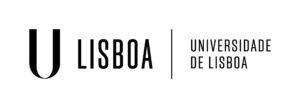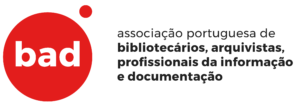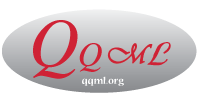
17th Qualitative and Quantitative Methods in Libraries International Conference (QQML2025)
Lisbon, Portugal
27 – 30 May 2025
Coorganizer: University of Lisbon
Room 1: Program Information
Room 2: Program Information
Book of Abstracts
Conference Venue: TTC@ULisboa — the Technology Transfer and Knowledge Valorisation Centre of the University of Lisbon
Av. Prof. Gama Pinto 2 | 1649-003 Lisboa
Tel.: +351 217 904 700
Website (Click here)
E-mail: ttc@ulisboa.pt
Map
28th of May: Half-day excursion: National Museum of Natural History and Science and Lisbon Botanical Garden,
31st of May: all-day tour: Tour Sintra, Cascais & Cabo da Roca
Portuguese Association of Librarians, Archivists, Information and Documentation Professionals (BAD)

Dear Friends, Dear Colleagues,
It is our pleasure to invite you in Lisbon for the 17th Qualitative and Quantitative Methods in Libraries International Conference which is organized under the umbrella of ISAST (International Society for the Advancement of Science and Technology).
The conference invites Special and Contributed Sessions, Oral Papers, Best Practices, Workshops and Posters.
Plenary talks, Workshops and Special Sessions are included in the related page of the website.
Because of the uncertain times we live the conference will be hybrid this year also: physically and virtually organized. This choice faces the challenges of the visa denial, virus pandemics etc. All necessary precautions will be taken into account and will be applied (limited numbers, masks, distance, vaccine, tests…).
Target Group
The target group and the audience are library professionals in a more general sense: professors, researchers, students, administrators, stakeholders, technologists, museum scientists, archivists, decision makers and managers, information scientists, librarians, records managers, web developers, IT specialists, taxonomists, statisticians, marketing managers, philologist, subject and reference librarians et al.
NEW DEADLINE: 20th of February
Notification of acceptance two weeks after submission.
Deadline Paper Submission: 1st of May 2025 (optional)
Deadline Presentation Submission: 1st of May 2025
Early bird Registration: up to 30th of March 2025
Submitting a Proposal or a session to secretar@isast.org
Submissions:
– Special Sessions
– Workshops
– Master theses separate session
– PhD students with separate session
Special Sessions – Workshops
You may send proposals here:
1. For Special Sessions (4-6 papers)
2. Workshops (more than 1-3 sessions) including the title and a brief description at: secretar@isast.org or from the electronic submission
3. Abstracts/Papers to be included in the proposed sessions, to new sessions or as contributed papers.
Contributions may be realized through one of the following ways
– structured abstracts (not exceeding 500 words) and presentation;
– full papers (not exceeding 12,000 words);
– posters.
In all the above cases at least one of the authors
ought to be registered in the conference here.
Abstracts and full papers should be submitted electronically
within the timetable provided in the web page here.
All abstracts will be published in the Conference Book of Abstracts and in the website of the Conference.
Please direct any questions regarding the QQML 2025 Conference and Student Research Presentations to:
the secretariat of the conference at: secretar@isast.org
The papers of the conference will be published in the QQML e- journal after the permission of the author(s).
The QQML e- journal www.qqml-journal.net is indexed by the Web of Science and the EBSCOhost.
A number of selected papers will be published in a volume which will be published by Springer Nature.
Main theme:
“Transformation and Innovation in Archives and Libraries in the Digital Age: Management, Preservation, Sustainability and Technological Impact” (en)
“Transformação e Inovação em Arquivos e Bibliotecas na Era Digital: Gestão, Preservação, Sustentabilidade e Impacto Tecnológico” (PT)
Sub- themes:
Qualitative and Quantitative Studies of User Behaviour in Public,
University and School Archives and Libraries
• Analysis of interactions among users, archives and libraries,
identifying how information professionals can optimize the services offered.
• Evaluation of the impact of archival and library practices on the user
experience.
Bibliometrics and Evaluation of Scientific Production in Academic and Specialized Libraries
• The role of the information manager in applying bibliometrics to measure the impact of scientific publications.
• Information manager contributions to organizing and preserving academic data and collections.
Collection Management and Metadata in National, University and School Archives and Libraries
• The role of archivists and librarians in curating collections and creating metadata to facilitate information retrieval.
• Information manager practices to ensure preservation and continuous access to physical and digital collections.
Libraries and the Sustainable Development Goals (SDGs): Contributions from University, School and Municipal Libraries on Open Access Projects
• How information managers promote the SDGs by democratizing
access to knowledge.
• The role of information managers in preserving and facilitating
access to documents and materials relevant to social and cultural
memory, in line with the SDGs.
Digital Preservation and Archives: Challenges and Opportunities in
National and University Archives and Libraries
• The role of archivists in preserving and disseminating digital
collections, ensuring that historical documents are accessible for
future generations.
• Open Access initiatives led by information managers to promote
digital preservation.
Impact of Artificial Intelligence (AI) on Archives and Libraries:
Opportunities and Challenges for Information Managers
• Analysis of the impact of AI on process automation and collection
management by archivists, librarians, and information managers.
• Ethical and practical considerations in the use of AI in archives and
libraries.
Partnerships and Cooperation Networks among National, University,
School, Municipal, Archives and Libraries on Open Access Projects
• The role of information managers in creating collaborative networks
that promote resource sharing and open access.
• Cooperation between information managers from different
institutions to preserve and disseminate digital and physical
collections.
University, School and Specialized Libraries as Support Centres for
Teaching, Research, and Open Access
• The contribution of information managers to supporting research
and teaching through the management of Open Access
repositories.
• Information managers as guardians of academic memory, ensuring
continuous access to essential documents for research.
Innovation in the Management of Public, School and University Libraries
• Innovative initiatives led by archivists, librarians, and information
managers, to improve the management of collections and services.
• Methods for evaluating the impact of new technologies and
practices on archives and library management.
Virtual Assistants and User Support Tools in University, School and
Public Libraries
• Implementation of virtual assistants and other technologies to
support information managers in serving users.
• Transformation of the role of information managers with the use of
new technological tools to support research and access to
information.
Information Literacy in University, School, Public, and Open Access
Libraries
• The role of information managers in promoting information literacy
among students, researchers, and the community.
• Initiatives by librarians to improve information skills through Open
Access repositories.
Higher Education in Information Sciences: Master's and Doctoral
Programs
• The role of master’s and doctoral programs in Information
Sciences in the training of archivists, librarians, and information
managers.
• Contributions of these programs to the advancement of research
and innovation in information management, document
preservation, and library services.
The General Data Protection Regulation (Regulation (EU) 2016/679) and
its application by information managers in archives and libraries
• Theoretical investigations and case studies
Conference Language: English and Portuguese
—Left-click on the following red-colored titles to view the documents:
Plenary Speech: The AI Reality: Cultivating Opportunities, Embracing Learning, and Facing Challenges (Speaker: Dr Dania Bilal)
Plenary Speech: Artificial Intelligence: Applications, Implications and Speculations (Speaker: Arlindo Oliveira)
Plenary Speech: AI: the ultimate frontier or just another step? (Speaker: Zélia Charraz Parreira)
Special Session: Linking research and practice: the synergies and their relevance to practice, policy and academia (Coordinator: Maria G. N. Musoke)
Workshop: Implementing the READ Scale (Reference Effort Assessment Data) Tool at Your Institution (Coordinator: Bella Karr Gerlich, PhD)
Workshop: Library Association Capacities – An interactive Workshop (Coordinator: Martha Kyrillidou, Workshop Leader)
Workshop: The Future of LibQUAL (Coordinator: Martha Kyrillidou, Workshop Leader)
16th : Cultural Center, Chania, Crete, Greece: 28 May-1 June 2024
15th : Hellenic Mediterranean University, Irakleion, Crete, Greece: Hybrid: 30 May- 3 June 2023
14th : National Hellenic Research Foundation, Athens, Greece: Hybrid: 24-27 May 2022
13th : Virtual: 25-28 May 2021
12th : Virtual: 26-29 May 2020
11th : European University Institute, Florence, Italy: 28-31 May 2019
10th : Cultural Center, Chania, Crete, Greece: 22-25 May 2018
9th : Limerick, Ireland: 23-26 May 2017
8th : Senate House, University of London, London, UK: 24-27 May 2016
7th : IUT Université Paris Descartes, Paris, France: 26-29 May 2015
6th : Kadir Has University, Istanbul, Turkey: 27-30 May 2014
5th : “La Sapienza” University, Rome, Italy: 4-7 June 2013
4th : Limerick, Ireland: 22-25 May 2012
3rd : Athens, Greece: 24-27 May 2011
2nd : Chania, Crete, Greece: 25-28 May 2010
1st : Chania, Crete, Greece: 26-29 of May 2009
